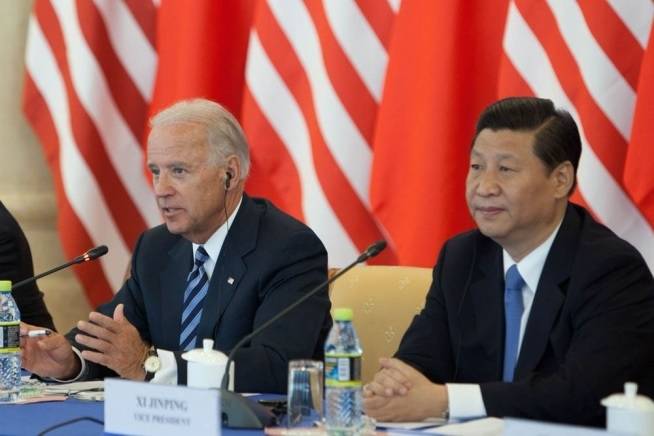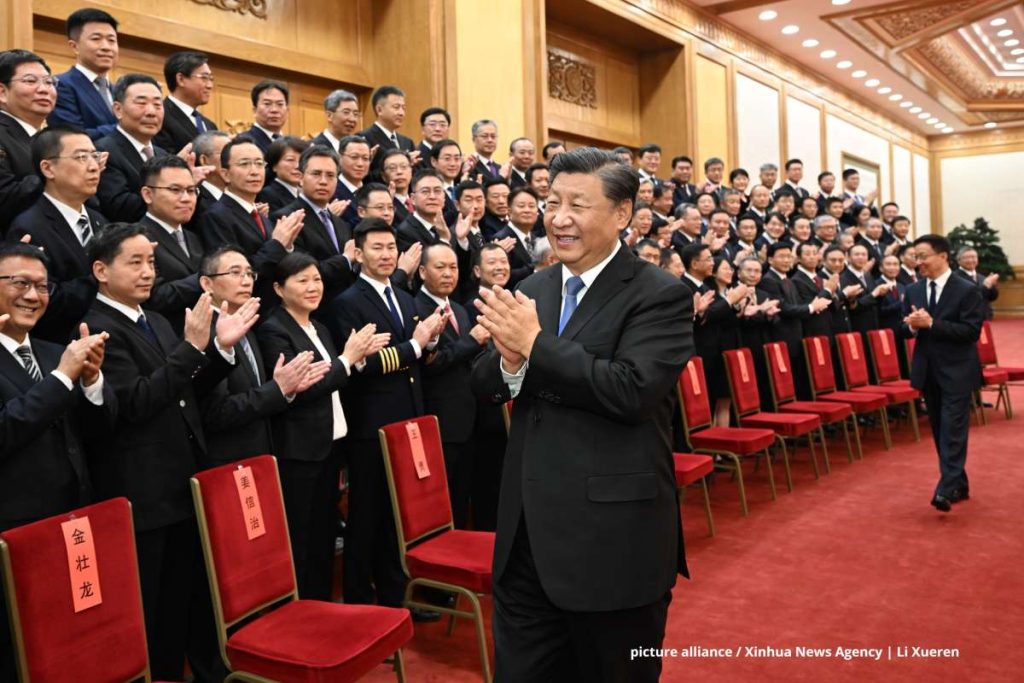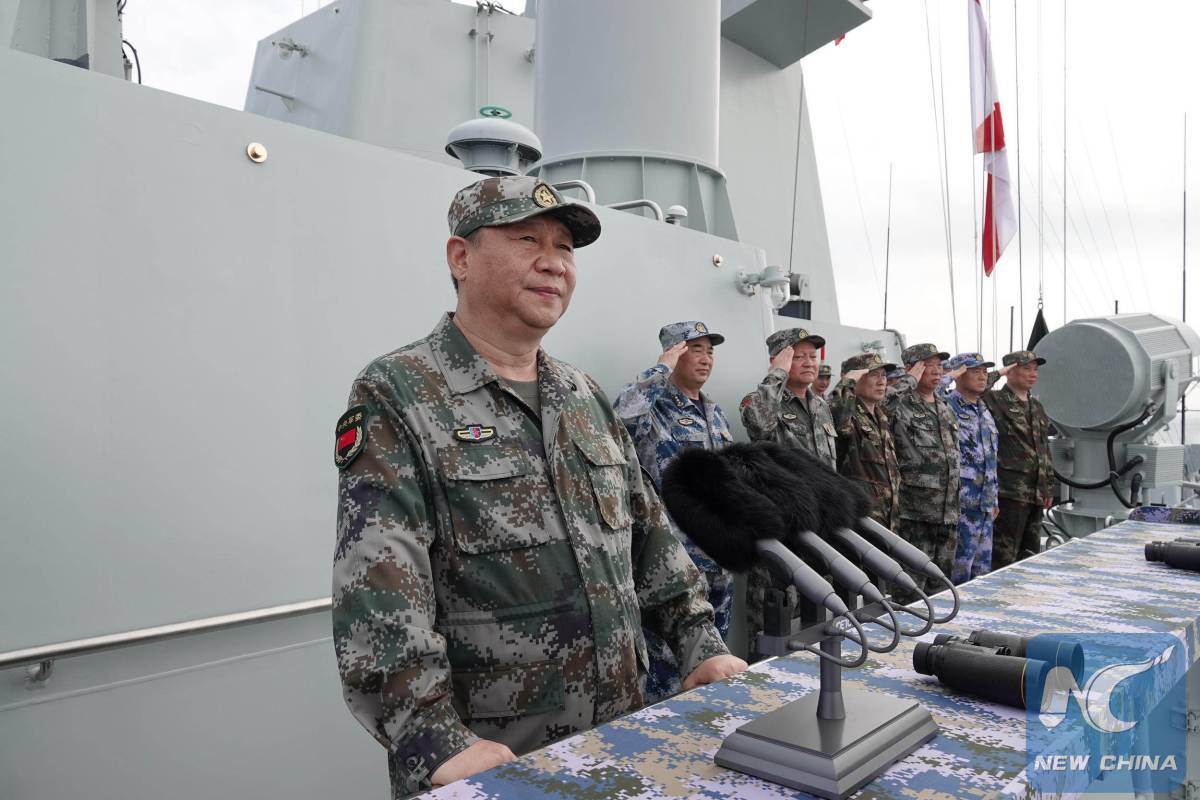The US National Security Strategy in a report says China is the only country, with both the intent to reshape the international order and, increasingly, the economic, diplomatic, military and technological power to advance that objective … writes Dr Sakariya Kareem
US President Joe Biden rolled out his National Security Strategy (NSS) for the United States (US), a document which every new US administration is required to issue.
The 48-page document has underscored “outcompeting China and restraining Russia” as the overwhelming challenges for the US in the coming years. It also stated the resolve about restoring damaged democracy at home. The NSS singled out competition among major world powers and shared threats, such as climate change, as the two biggest challenges facing the US. It also reemphasized the importance of working with allies to tackle challenges confronting democratic nations.

The document while delineating the major cause of concern for the US, pointed out to China’s moves to “layer authoritarian governance with a revisionist foreign policy” rather than Russia, which it described as a “declining, battered Russia.”
According to the document, Russia and the PRC pose different challenges – “Russia poses an immediate threat to the free and open international system, recklessly flouting the basic laws of international order today, as its brutal war of aggression against Ukraine has shown.” However, it contended that “China is the only country, with both the intent to reshape the international order and, increasingly, the economic, diplomatic, military and technological power to advance that objective.” The report reckoned China as a bigger threat to global order.
The document highlighted the view that US leadership is the key to overcoming global threats and even after Russia’s invasion, China represents the most consequential challenge to the global order and the US must win the economic arms race with the rising and new superpower in making if it hopes to retain its global influence and stop the revisionist and authoritarian powers which are undermining international peace and stability.
The document sketches broad terms and a road map to navigate between the near-term threat of a revanchist Russia and the longer-term threat of a rising China. The NSS document argues that the source of US strength will come from a reaffirmation of the nation’s democratic traditions. The US would also derive its strength from allies as well as adversaries due to shared concerns on rising China which is seeking to rewrite the rules of commerce, surveillance and influence over other countries and Russia seeking to redraw national boundaries.
The Biden administration’s approach as revealed in the NSS, would be to foment and strengthen partnerships in the Indo-Pacific to compete with China and address shared transnational threats, such as climate change, pandemics, terrorism, and energy shortages. Inherent in this approach is the centrality of India as a major partner in the Indo-Pacific theatre of geopolitics.
The document offers the most in-depth look at the Biden administration’s worldview to date. The NSS lays out a vision for a free, open, secure, and prosperous world and a comprehensive plan to realize it. As per the document, many countries seek to live in a world that respects the foundational principles of self-determination, territorial integrity, and political independence; where countries are free to determine their own foreign policy choices; information is allowed to flow freely; universal human rights are upheld, and the global economy operates on a level playing field – providing an opportunity for all.
According to national security advisor, Jake Sullivan, the “People’s Republic of China harbours the intention and increasing capacity to reshape the international order and tilt the global playing field to its benefit, even as the United States remains committed to managing the competition between our countries responsibly.” But at the same time “We will hold Beijing accountable for abuses – genocide and crimes against humanity in Xinjiang, human rights violations in Tibet, and the dismantling of Hong Kong’s autonomy and freedoms – even as it seeks to pressure countries and communities into silence.” He also revealed that the US will continue prioritizing investments in a combat credible military that deters aggression against its allies and partners in the region, and can help those allies and partners defend themselves.

China’s aggressive efforts to realise the dream to become a global power has not caused an alarm bell for the US alone, but in other parts of the world including India as well. Beijing has ambitions to create an enhanced sphere of influence in the Indo-Pacific and to become the world’s leading power. It is using its technological capacity and increasing influence over international institutions to create more permissive conditions for its own authoritarian model and to mould global technology use and norms to privilege its interests and values. Beijing frequently uses its economic power to coerce countries. It benefits from the openness of the international economy while limiting access to its domestic market, and it seeks to make the world more dependent on the PRC while reducing its own dependence on the world. The PRC is also investing in a military that is rapidly modernizing, increasingly capable in the Indo-Pacific, and growing in strength and reach globally – all while seeking to erode US alliances in the region and around the world.
China’s external ambition as spelt out by President and Chinese Communist Party general secretary Xi Jinping at the inaugural session of the party’s 20th Congress makes it clear that India will have to keep a close watch on the neighbour’s activities. Xi hailing China’s policy on Hong Kong’s autonomy cautioning Taiwan that the “wheels of history” are turning towards Beijing and highlighting rivalry with the West have implications for India as well, considering the situation across the Line of Control, especially near the Ladakh border.

